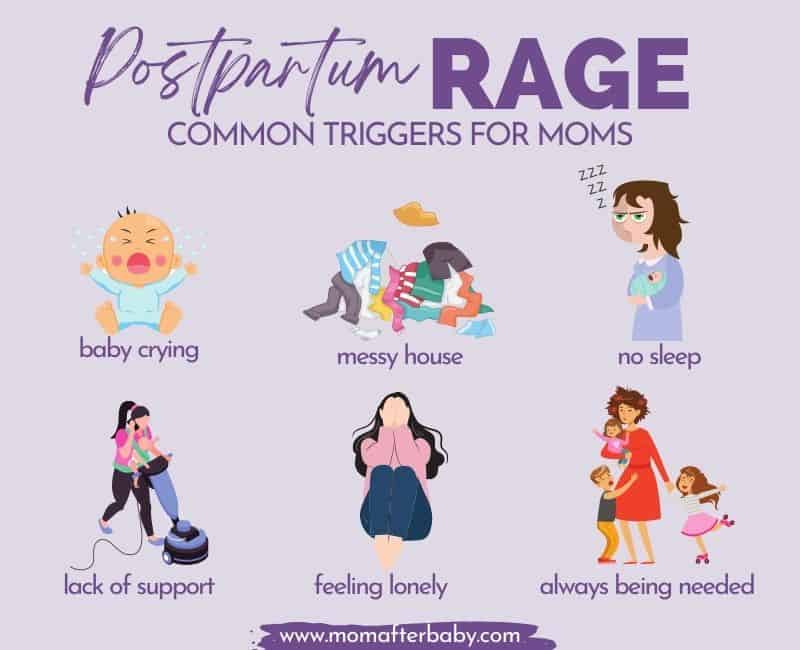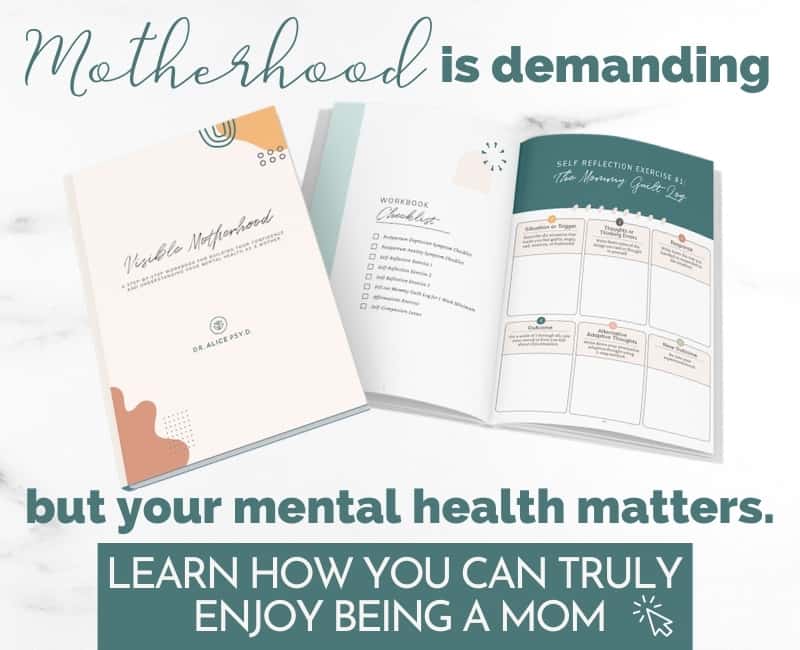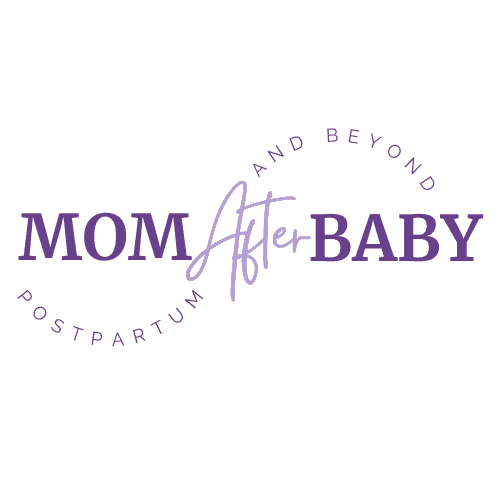Managing Mom Rage — Yes, It’s Real
This post may contain affiliate links that I may receive a commission from if you click & buy. In addition, the information on this site is NOT intended to be medical advice. See my full policy for more information.
You’re rocking your precious baby in your arms after hours of them refusing to nap. You want to cherish this memory forever, but you feel the anger set in. The mom rage as some call it. It’s boiling, the thought of another sleepless night leaves you feeling hopeless and exhausted. Mama — the rage you’re feeling isn’t uncommon and I’m sorry nobody warned you about it. Below, you can learn how to manage and cope with the anger you’re feeling and slowly turn it back into happiness.
Nobody wants to admit when they’re feeling they’re worst — why would we? That’s probably why you didn’t realize maternal anger and rage is far more common than you thought.
The bad news is that it can really take a toll on your day-to-day happiness. It’ll drag you out of the present and under a dark shadow looming with feelings of anger, frustration, and irritability. The good news is that there are ways to help you manage the mom rage and feel a little less angry, too.
What is “Mom Rage” (maternal rage)?
Mom Rage (sometimes called maternal rage or maternal anger) is the term heightened uncontrollable anger many moms experience throughout pregnancy, postpartum, and motherhood.
Oftentimes, women are caught completely off guard by the overwhelming anger that rushes over them. They feel like they don’t know who they are. They feel out of control. And worst, they feel incredibly alone. Mom rage is so real and it’s time we start talking about it more.
Why Do Mothers Get So Angry?
You’re probably wondering what in the world could make a mother so angry that she flys off the handle, right? Well, it turns out that mom rage is a pretty clear sign of a lack of support. I mean, really think about that.
Imagine a stay-at-home mom getting an average of 3 to 4 hours of sleep each night since she’s breastfeeding her 5-month-old infant. She has to wake up by 7 am the next morning to get everything prepared for her two older children currently being homeschooled. Between fulfilling the needs of an infant and her homeschooled children, she then has to tidy up the home and get dinner ready before her spouse gets home. She also had to schedule the kid’s doctor appointments, make sure 3 of the 8 bills got paid, and take the kids to soccer practice after dinner. By the end of the day when everyone is in bed, this mother has had absolutely zero time to herself. No time to hear her own thoughts, no time to have peace and silence, no time to feel like she’s anything else BUT a mother.
This narrative goes hand in hand with working mothers too. The problem is, mothers are NOT getting enough help or support so that they can refill their cups throughout the day.
Yes, there are ways you can manage stressors and anxieties which we’ll talk about below, but the key here is that any person is bound to feel burnt out when they’re being overworked day and day again. And for the record, it doesn’t make anyone a bad mother for needing a break.
How an Angry Mother Affects a Child
Children, especially babies, rely on their parents to keep them safe, loved, and nourished. When we’re full of anger and rage — it prevents us from really showing up for our babies. It prevents a mother from living in the present and soaking up the most precious moments. And more importantly, it prevents a mother from prioritizing her own needs that go beyond motherhood.
Allowing these feelings to carry on and dictate your day-to-day life can be hard on a child. Young children may learn to suppress their feelings, leading to an increased risk of stress, depression, and mental health issues as they grow older.
Babies may be deprived of the crucial bonding time needed to help them feel safe and secure, hindering their social-emotional development.
Knowing the ways untreated mom rage can affect a child should help highlight the importance of getting help and support during this dark time in any mother’s life.
Could Maternal Anger Be A Symptom of Postpartum Depression and Anxiety?
Maternal anger, postpartum rage, mom rage — yes, they could all by signs and symptoms of a maternal mental health condition such as postpartum depression or postpartum anxiety.
The challenge with maternal mental health illness is that they show up differently for all mothers.
Some moms describe feelings of sadness and weeping, while others experience bursts of anger and sadness simultaneously. To help determine which prenatal mood disorder you could be dealing with here are some ways to tell them apart:
Signs of POSTPARTUM DEPRESSION
- Uncontrollable crying
- Mood swings
- Insomnia
- Sadness/Hopelessness
- Feelings of shame or guilt
- Anxiety
- Feeling fatigue
- Intursive Thoughts
Signs of POSTPARTUM ANXIETY
- Feeling jittery/can’t relax
- Constantly worried
- High levels of anxiety
- Hopelessness/sadness
- Difficuly focusing
- Racing thoughts
- Insomnia
- Difficulty eating/lack of appetite
- Nausea or Vomiting
Signs of POSTPARTUM RAGE/MOM RAGE
- Feelings of shame or guilt
- Anxiety/Depression
- Intense anger, irritability, and/or frustration
- Unable to let things go
- Difficulty managing stressful situations
- Difficulty bonding/connectiong with baby or child
- Relationship struggles
Keep in mind, the symptoms listed above are not the only signs you may be having. Plus, many of these can overlap with one another too. If you’re struggling to

5 Ways to Manage Mom Rage
Please remember, if you’re experiencing postpartum rage, you are NOT a bad mom. The first step is acknowledging you’re struggling and then finding the help you need. Below are 5 ways to help treat mom rage.
1. Find Support
No matter how many children you have, finding support groups (whether in person or online) are always helpful for moms. They help connect moms with other women going through the same things — validating their struggles and helping them find solidarity through the season of motherhood they’re in.
Support groups are also a great way for moms to find a forever friend! It can be really hard to make mom friends, so having a close friend to lean on is always a benefit.
2. Journaling
Journaling is a good option for mothers starting to notice the early signs of mother rage. Promptly has some lovely journals specifically created for postpartum mothers. They also have journals for fertility, miscarriage, and childhood. You can view them here. Once you begin to journal, there are a few ways that can be really helpful:
- Word vomit your day onto paper
- Keep track of your symptoms
- Note any specific triggers
- Monitor negative feelings closely
- Identify which of your basic needs aren’t being met (and note some ideas on how you can begin prioritizing them)
These are just some ideas on how you can use your journal in a somewhat therapeutic way, but also to help you explain the impact the mental load of motherhood has on you when looking for help.
3. Therapy
I am a huge advocate for therapy. One — I can tell you from personal experience that working one on one with an experienced perinatal therapist (or clinical psychologist specializing in maternal mental health) changed my life for the better. Two — talking with an expert can help you find ways to navigate your triggers and find coping strategies to help you calm down in the heat of the moment.
However, I know therapy isn’t affordable or accessible for everyone. If you are in the trenches and need some help getting back out, I’d encourage you to:
- Call PSI (Postpartum Support International) hotline at 1-800-944-4773 (they’ll be able to direct you to resources and professional help)
- Use the Visible Motherhood Workbook (a step by step workbook created by a Clinical Psychologist specializing in maternal mental health to help mothers work through and understand their postpartum emotions)
- Use PsychologyToday to find a therapist (and you can even search for those that offer a sliding scale for more affordable pricing)

4. Prioritize Your Needs
When we don’t prioritize our most basic needs, all of us are bound to reach our breaking point eventually. This applies to mothers, too.
Should showers, eating a meal in silence, or pooping without a tiny human sitting on your lap be considered “self-care”? No. However, when those basic needs get taken away from us on top of the fun things you use to do outside of being a parent — these small things add up to the burnout and then the rage.
Try making yourself a list of the non-negotiable needs that MUST be met in order to help you feel like, you know, a functioning human being. Then, brainstorm ways to help you get that support.
For instance, if you’re having a hard time because you aren’t getting enough sleep, can you make time to sleep in on select days or schedule some naps while your partner carries some of the weight? This is just one idea to help you get started. As long as you go into it with realistic expectations, you’ll be on your way to getting those needs fulfilled in no time.
5. Medication
Sometimes, medication can be needed to help mothers get to a place where they are able to go to therapy and actually apply the strategies they’re learning. A lot of times moms feel ashamed or guilty for needing to turn to medication, but there is no shame to be had. Medication is like a tool. Sometimes, the current tools we’re using just aren’t quite getting the job done, so we switch up our tools to lend a helping hand.
If medication is an option you think could be beneficial for you, make sure to discuss it with your primary healthcare provider.
The bottom line is that mom rage is much more common than moms think. Despite it feeling scary, overwhelming, and frustrating — you’re never alone. With the proper help and support, you’ll be on your way to feeling like your normal self soon.




